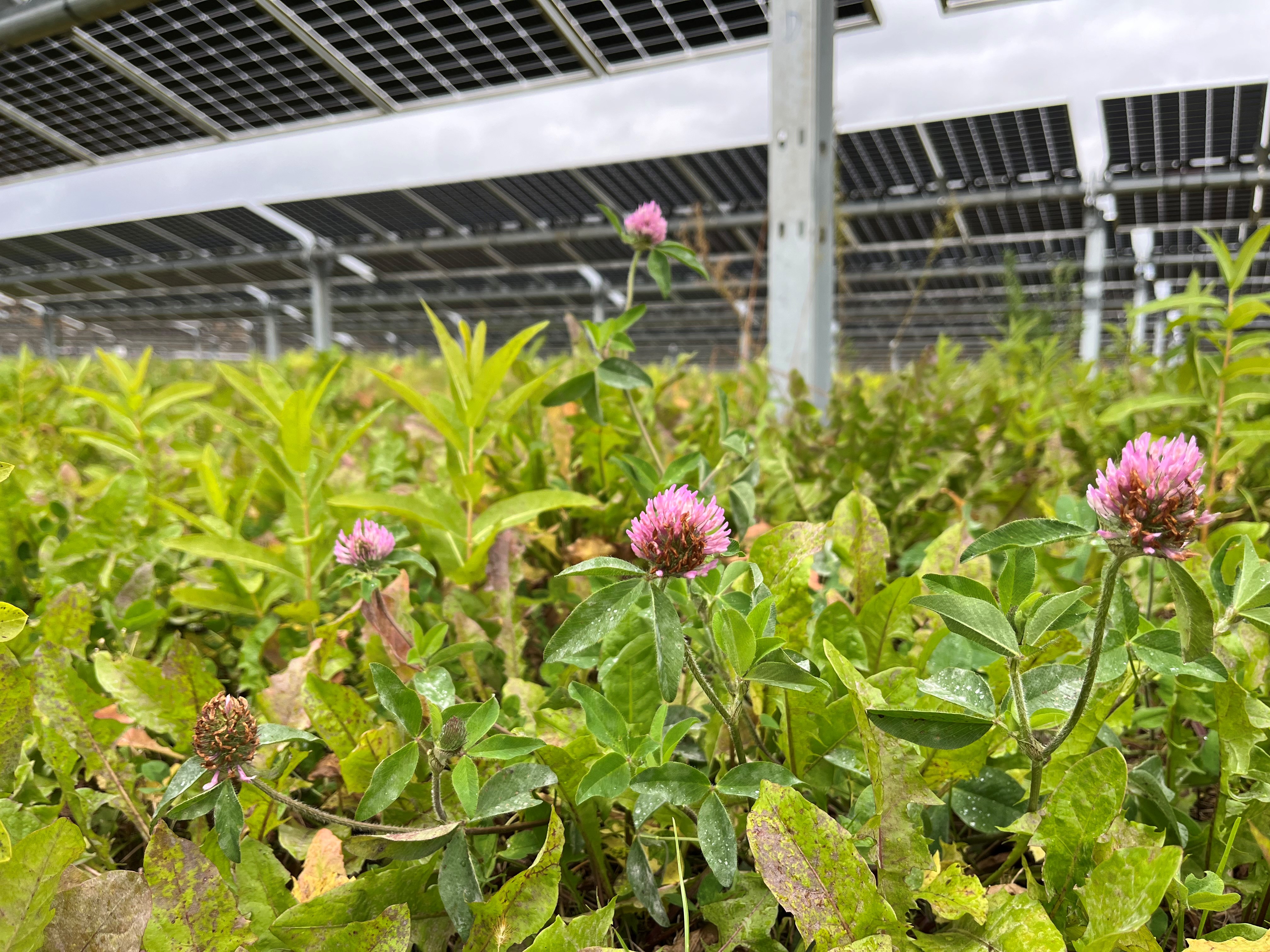Clean Energy
Expertise
Projects
Invenergy Services
Partners
Who We Are
News & Insights

Apr 11, 2024
power lines
Celebrating Earth Month with the environmental compliance and strategy team
by Invenergy
This Earth Month, Invenergy is proud to spotlight the work of our Environmental Compliance and Strategy (ECS) Team — industry-leading subject matter experts who work across departments to ensure we are responsibly building our projects. The ECS team’s work is foundational to the land-based wind, solar, transmission and offshore wind development we do at Invenergy, and as our portfolio has expanded, so has the team.
Learn more about how the ECS team’s wide breadth of knowledge and commitment to innovation are integral to developing environmentally responsible projects that and building a sustainable world.
Land-based generation
Members of the ECS team who support land-based generation projects ensure wind and solar projects comply with applicable environmental laws and regulations, which requires their involvement in the evaluation, siting, building, and operating phases of wind and solar projects across the United States. They are experts in environmental policies established by federal, state, and local regulatory agencies, like the US Fish and Wildlife Services, which inform what approach Invenergy’s land-based wind and solar projects need to follow to responsibly co-exist with local wildlife and natural resources.
A component of the land-based generation teams’ contributions to environmental stewardship is industry-leading research on how wildlife interacts with wind and solar projects across the United States. In recent years the team has conducted and monitored research in California, Wyoming, Illinois, Michigan, and New York related to avian, bat, and pollinator studies. These studies will not only improve our ability to minimize environmental impacts but inform and shape future environmental policies.
Our land-based team’s core mission is to avoid sensitive environmental areas and minimize project impact, ensuring a necessary balance between the clean energy infrastructure we need to build and the environment we’re trying to protect.
Vegetation management
Invenergy is one of the first clean energy developers to build out its own dedicated vegetation management team. This group includes soil scientists who create comprehensive vegetation and soil management plans that are customized for each site. Invenergy’s vegetation management team has conducted soil sampling across all our existing solar sites to inform strategies for regionally appropriate seed mix composition, soil amendment inputs, and topsoil salvage techniques.
Through 2023, the team advised on vegetation management at least 18 solar projects in construction. Establishing suitable vegetation at solar sites may support the local ecosystem by improving soil health, providing wildlife habitats, sequestering carbon, minimizing surface erosion, improving water quality, and the proliferation of noxious and invasive weeds.
Transmission
Our transmission projects are key to ensuring we have a reliable grid that can move clean energy to where it’s needed most. From the ECS team’s perspective, these types of projects are different from our work supporting renewable energy generation projects because of their longer development timelines and larger footprints that often span several counties and states.
The members of the ECS team focused on transmission ensure that projects are thoughtfully sited within the landscape while also building long-term relationships with a variety of stakeholders, including regulatory and resource agencies like the U.S. Army Corps of Engineers and U.S. Fish and Wildlife Service. The transmission team prioritizes building relationships with the Tribal Nations who have a strong connection to the land where our projects are built.
Offshore wind
Invenergy is thrilled to bring our expertise to the offshore wind (OSW) space on both U.S. coasts. The team prioritizes working with Tribal Nations to ensure culturally sensitive project development. It also works closely with stakeholders including fisheries and science partnerships to ensure these transformative projects are developed with conservation and marine life at the forefront of our work.
The offshore team utilizes industry best practices, innovation, and leverages Invenergy’s onshore expertise to ensure our offshore wind projects are developed with minimal impacts to marine ecosystems. Our team helps employ protected species observers on all vessels used for the project and brings innovative tools to track and monitor wildlife in the area. Other examples of the team’s leading-edge approach include testing for fish species by detecting environmental DNA in water samples as well as the recent launch of an underwater glider to explore the waters within and surrounding an offshore wind lease area. These are just a few recent examples of how the work of our ECS OSW team contributes to our industry-leading track record of setting the standard for responsible development.
This Earth Month, and every month, we are grateful for our colleagues on the Environmental Compliance and Strategy team for the work they do to support the responsible development of our clean energy projects.
Learn more about our ECS team's work.
Expertise
Projects
Invenergy Services
© 2023 Invenergy